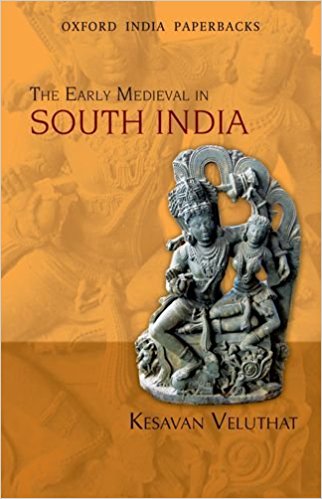The title of the book is not the Early Medieval of South India—which would have implied that the author is studying one phase amongst the many phases in the history of South India. By underlying The Early Medieval in South India, Veluthat separates the two—Early Medieval and South India as if they are two different (and contentious!) concepts that have to be brought together, deliberately and consciously and with considerable effort into the realm of historical scholarship. Veluthat does just that—he makes a strong plea for the recognition of the Early Medieval as a separate and a distinct phase in the historical development of the southern regions, emphasizing that the phase is not distinguishable as much for political and dynastic changes as for ‘expansion of agriculture in a big way, social differentiation leading to creation of a hierarchy, transformations of tribes into peasants / castes, emergence of trade as an instituted process involving notions of pricing and profit in place of old exchange systems based on need and reciprocity and, above all, the authentic arrival of the institution of the state’.
Veluthat, conscious of the various ways in which the early medieval has been perceived, ranging from pan-Indian studies on ‘feudalism’ and the search for kali age crises to regionally specific ‘integrative’ approaches, manages to deftly engage with these perceptions while maintaining a distance from the need to slot historical material and data into preconceived theoretical constructs.


Very interesting topic, thanks for posting.Raise your business